第21章 IV(6)
That was only the first trouble.The second lay in the tone of the productions.Leading articles which include gems such as "Back of such and such a place,"or,"We noticed,Tuesday,such an event,"or,"don't"for "does not,"are things to be accepted with thankfulness.All that made me want to cry was that in these papers were faithfully reproduced all the war-cries and "back-talk"of the Palmer House bar,the slang of the barber-shops,the mental elevation and integrity of the Pullman car porter,the dignity of the dime museum,and the accuracy of the excited fish-wife.I am sternly forbidden to believe that the paper educates the public.Then I am compelled to believe that the public educate the paper;yet suicides on the press are rare.
Just when the sense of unreality and oppression was strongest upon me,and when I most wanted help,a man sat at my side and began to talk what he called politics.
I had chanced to pay about six shillings for a travelling-cap worth eighteen-pence,and he made of the fact a text for a sermon.He said that this was a rich country,and that the people liked to pay two hundred per cent,on the value of a thing.They could afford it.He said that the government imposed a protective duty of from ten to seventy per cent on foreign-made articles,and that the American manufacturer consequently could sell his goods for a healthy sum.Thus an imported hat would,with duty,cost two guineas.The American manufacturer would make a hat for seventeen shillings,and sell it for one pound fifteen.
In these things,he said,lay the greatness of America and the effeteness of England.Competition between factory and factory kept the prices down to decent limits,but I was never to forget that this people were a rich people,not like the pauper Continentals,and that they enjoyed paying duties.
To my weak intellect this seemed rather like juggling with counters.Everything that I have yet purchased costs about twice as much as it would in England,and when native made is of inferior quality.
Moreover,since these lines were first thought of,I have visited a gentleman who owned a factory which used to produce things.He owned the factory still.Not a man was in it,but he was drawing a handsome income from a syndicate of firms for keeping it closed,in order that it might not produce things.This man said that if protection were abandoned,a tide of pauper labor would flood the country,and as I looked at his factory I thought how entirely better it was to have no labor of any kind whatever rather than face so horrible a future.
Meantime,do you remember that this peculiar country enjoys paying money for value not received?I am an alien,and for the life of me I cannot see why six shillings should be paid for eighteen-penny caps,or eight shillings for half-crown cigar-cases.When the country fills up to a decently populated level a few million people who are not aliens will be smitten with the same sort of blindness.
But my friend's assertion somehow thoroughly suited the grotesque ferocity of Chicago.
See now and judge!In the village of Isser Jang,on the road to Montgomery,there be four Changar women who winnow corn--some seventy bushels a year.Beyond their hut lives Purun Dass,the money-lender,who on good security lends as much as five thousand rupees in a year.Jowala Singh,the smith,mends the village plows--some thirty,broken at the share,in three hundred and sixty-five days;and Hukm Chund,who is letter-writer and head of the little club under the travellers'tree,generally keeps the village posted in such gossip as the barber and the mid-wife have not yet made public property.
Chicago husks and winnows her wheat by the million bushels,a hundred banks lend hundreds of millions of dollars in the year,and scores of factories turn out plow-gear and machinery by steam.Scores of daily papers do work which Hukm Chund and the barber and the midwife perform,with due regard for public opinion,in the village of Isser Jang.So far as manufactories go,the difference between Chicago on the lake,and Isser Jang on the Montgomery road,is one of degree only,and not of kind.As far as the understanding of the uses of life goes,Isser Jang,for all its seasonal cholers,has the advantage over Chicago.
Jowala Singh knows and takes care to avoid the three or four ghoul-haunted fields on the outskirts of the village;but he is not urged by millions of devils to run about all day in the sun and swear that his plowshares are the best in the Punjab;nor does Purun Dass fly forth in an ekka more than once or twice a year,and he knows,on a pinch,how to use the railway and the telegraph as well as any son of Israel in Chicago.But this is absurd.
The East is not the West,and these men must continue to deal with the machinery of life,and to call it progress.Their very preachers dare not rebuke them.They gloss over the hunting for money and the thrice-sharpened bitterness of Adam's curse,by saying that such things dower a man with a larger range of thoughts and higher aspirations.They do not say,"Free yourselves from your own slavery,"but rather,"If you can possibly manage it,do not set quite so much store on the things of this world."And they do not know what the things of this world are!